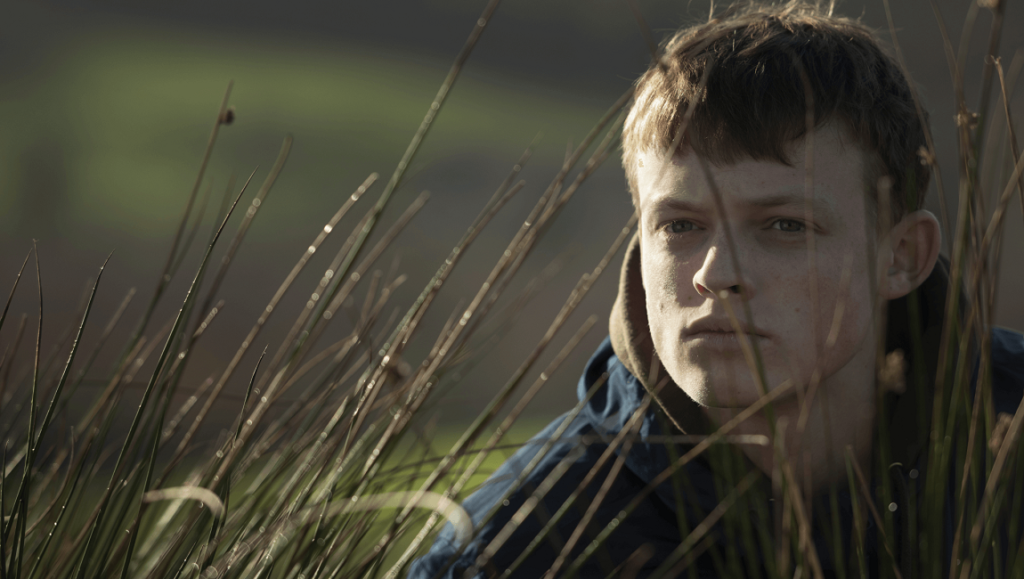The Winter Lake angles for slow-burn thriller mode, but manages only to be slow as it brings little of substance to the table.
Set in a rural, rain-soaked Irish countryside, Phil Sheerin’s The Winter Lake starts solidly enough. As the film focuses mostly on the cold and bleak natural landscapes, boasting a dark green and blue palette, it’s apparent that Sheerin’s main intention here is to form an atmospheric thriller, one that pushes its narrative to the background in order to focus on its four principal characters and a mystery that disturbs the tranquility of this faraway place. The problem is, as the film progresses, it never quite finds much that it can convincingly or effectively substitute for its lack of suspenseful story. The actors do their best to vividly embody their troubled, if slightly scripted, characters, particularly seen in the relationship between young, angst-ridden Tom (Anson Boon) and girl-next-door Holly (Emma Mackey, whose mysterious rebel lassie here recalls her role as Maeve in Netflix’s Sex Education), who harbors a dark secret that Tom soon uncovers. Unfortunately, Sheerin and screenwriter David Turpin do little to cultivate these characters from one scene to another, and the plot tries to unravel itself through unconvincing and unengaging dialogues that strive only to keep everything vague until the very end.
So, while the lack of a reliable story fails to develop any suspense, Sheerin opts for the easiest and quickest solution: allow August Murphy-King’s eerie electronic soundtrack to imbue a superficial, nihilistic ambiance throughout the film and let the tense theatrics escalate, placing everything under the heavy pressure of sobbing and shouting, before characters suddenly tune to radio silence in the second half. The somber visuals are excessively dark (often almost to the point of pitch-blackness), and oppressive quality reflects the film itself: the longer The Winter Lake goes on, the harder it becomes to care about what’s happening on screen until the point it reaches its predictable “climax” and flat, passive conclusion. Sheerin’s relative inexperience — having only directed a handful of short films — could explain some of this mishandling, but also to blame is that the film oscillates so unevenly between British realist, familial drama (think Ken Loach, for instance) and moody folk horror, each element effectively neutralizing the other. These days, it’s quite common to lazily categorize or vindicate a film like this with the label of “slow-burn thriller.” Sure, The Winter Lake is indeed slow, but it doesn’t have enough in its tank to sustain that measured pacing for any length of time, leaving things flat. In the end, it offers little that either burns or thrills.
Published as part of Before We Vanish | March 2021.


Comments are closed.